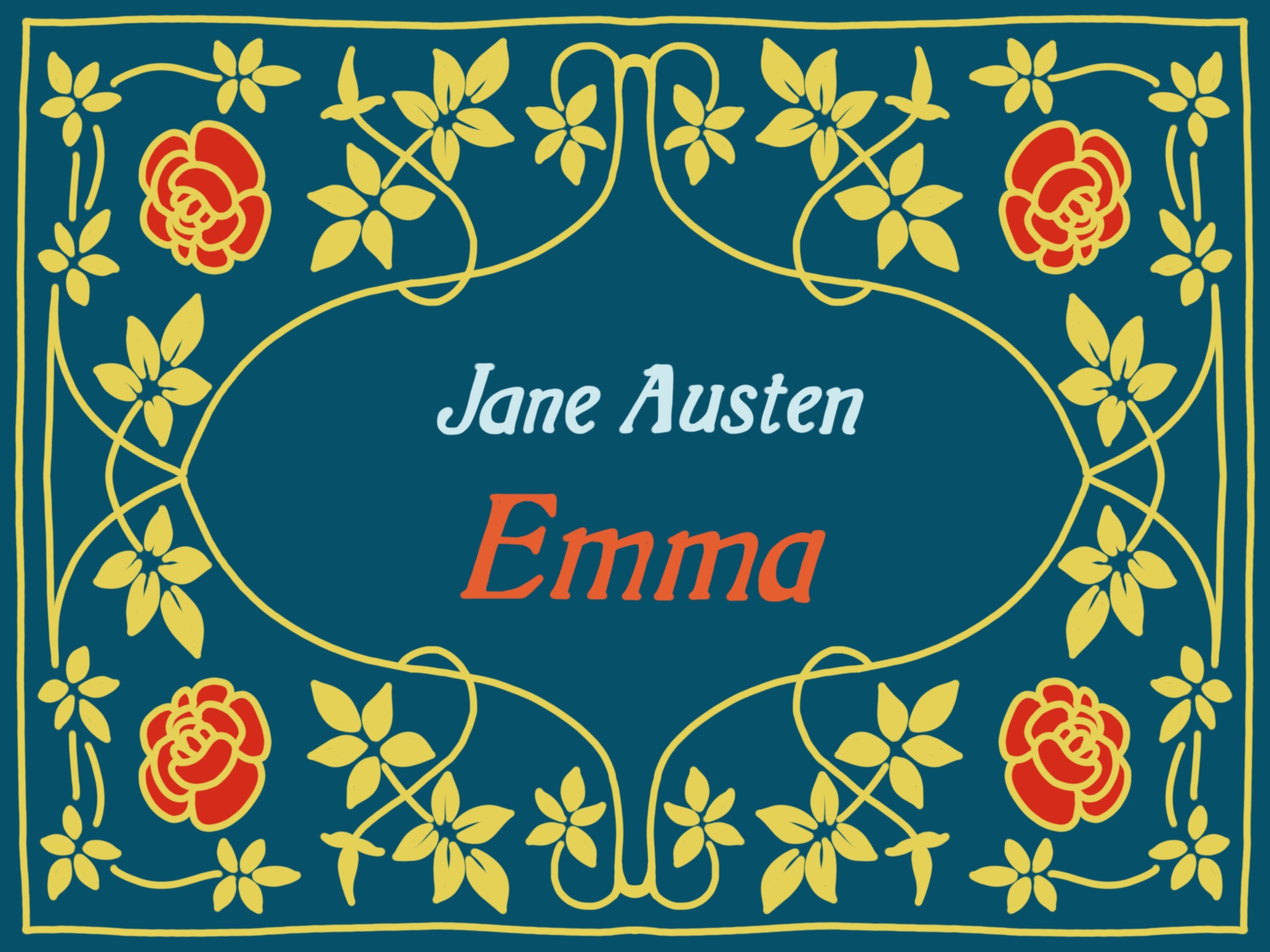“If I loved you less, I might be able to talk about it more,” is what I would say if I wasn’t such a yapper. Fortunately for you all, though, I can — and will — talk all about my newfound love for classic literature.

It all starts with Jane Austen’s “Emma.”
For those of you familiar with the novel, you would know that the previous quote is said by none other than Mr. Knightley, the lifetime friend of the novel’s protagonist, Emma Woodhouse. To me, Mr. Knightley is the ultimate literary love interest ever written.
In addition to the lovely Mr. Knightley, the novel bursts at the seams with vivacious characters that, by the end of the novel, you either deeply love or loathe. There is no in-between.
I absolutely loathe Mrs. Elton. But hey, that’s just me and one of my tangents for later. Let me take you to the start.
I wasn’t always a fan of classic literature. If you would have asked me a year ago to read a classic novel by choice, I would have laughed in your face. I wouldn’t have done it even if you paid me. I was a self-proclaimed classics hater.
Looking back, I think this stemmed from the fact that classic literature always seemed synonymous with academic settings. While reading classics is integral in any English curriculum, I would be lying if I said this didn’t get on my nerves.
I mean, come on — was it really necessary to have us read Shakespeare’s entire bibliography? I digress.
The fact of the matter was that I hated reading classic literature even though I loved English class. It was my favorite subject, but I would sit in my English classes and dream of the day that I would no longer have to read texts from centuries that started with the number one.
I know that this hatred for classics didn’t stem from disliking reading. You’re listening to a girl who has completed her Goodreads reading challenge every year since she downloaded the app.
Yet, I felt an immense urge to rip my hair out every time I had to read a sentence with the words “thee,” “thou” or “thy.”
When it came time to choose a major for college, I knew that I wanted to do something English-oriented, but I couldn’t bring myself to dedicate the next four years of my life to an English major if it meant that I had to read what I once thought was unnecessary.
Oh, how naive I was.
In the first week of college as a journalism major, I walked into my Introduction to Communication class ready to leave my days of classic literature behind. I felt free, liberated, happy even — for like a week.
While I was still reading from current authors like Emily Henry and Rachel Lynn Solomon in class, I felt like something was missing from my reading life. These kinds of books are great and I still love them, but something about the characters and the story lines were starting to feel flat.
So, I took my understimulated reading brain to Google and searched for what I never thought I would: a classic novel.
I ended up stumbling upon Jane Austen’s “Emma.” Ironically, I heard about the book in the past from my friend Emma, but I never actually read it.
With that, I made my way to the local bookstore and dove into what is now one of my favorite books.
I flipped open to page one and was immersed into the world of Highbury, the high societal village that the novel takes place in. I fell in love with Emma’s character in ways that I didn’t think I would. Despite all of her very obvious flaws, any reader can see that Emma is just like the rest of us.
She’s not perfect, but she’s human.
Emma’s humanity doesn’t come from the quirky, female protagonist stereotype that many modern books tend to make of female heroines. Rather, Emma’s humanness comes from the fact that there’s a lot wrong with her.
Yet, through all of her flaws, including being spoiled or judgmental, Jane Austen’s writing makes me love Emma through and through. The rich detail of her experiences are so eloquently written that I felt like I was hanging off of every page. The plot is all in the underlying details, which was a little bit difficult to dig into at first. However, I couldn’t put the book down once I latched onto such intricacy.
I read for hours on end, whether it was on the couch, in my bed or on the train. When I finally reached the ending, I felt satisfied with the resolution, but couldn’t wait to find my next classic read.
Past me would be shocked if she knew how much I came to love classics. Heck, I even added an English minor just so I can continue delving into classic pieces.
My next classic read will naturally be “Little Women,” so stay tuned for that review!
All in all though, if you ever find yourself hating on classic literature, I would suggest picking up “Emma.” Give it a gander — you might just find yourself transforming from a classics hater to a classics lover.




